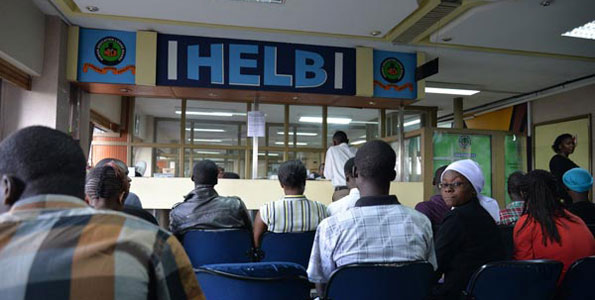Students from rich families will pay more for their education at public universities, in the latest effort to alleviate the institutions’ severe cash crunch and reduce their reliance on the Treasury.
The University Funding Board (UFB), the State agency in charge of allocating student funds to universities, is pushing for a reduction in government funding for rich children attending universities.
The review will also affect government-sponsored students at private universities who receive at least Sh70,000 per year depending on the course they are pursuing, regardless of their financial situation.
Under the current funding model, the government is expected to pay 80 percent of the cost of degrees per student, with students at public universities paying about Sh28,000 per year. With the support of the Treasury and university vice-chancellors, the funding board wants the allocations reviewed to reflect the students’ income status.
In recent years, public universities have faced financial strain as a result of rapid expansion amid reduced State funding and a sharp drop in enrolment on self-sponsored programs following the government’s decision to fully fund students scoring the minimum C+ entry grade and above in the Kenya Certificate of Secondary Education (KCSE) exams.
Students enrolled in parallel degree courses have generated billions of shillings for the institutions over the years because they pay the full cost of programs such as medicine, which can cost more than Sh600,000 per year.
Starting with the next intake, UFB and vice-chancellors want students from wealthy families to pay the full or a larger share of the cost of degrees.
“This policy brief recommends a gradual introduction of targeted free tuition to shift the burden of higher education funding to only needy and bright students,” UFB says.
“Evidence has shown that a number of households in Kenya, especially those in the middle and upper income quotients, may not require any financial support to put their children through university education.”
When disbursing funds, the State will have students vetted by the Higher Education Loans Board (Helb), with the wealthy barred.
Scholars cite scenarios in which parents pay Sh175,000 per year for a student at Kabarak Primary School, Sh200,000 in the institution’s secondary schools, and less than Sh50,000 in the university section under government sponsorship.
Kenya will follow in the footsteps of Uganda, which is attempting to prevent wealthy children from receiving government funding for degrees at public universities.
Because of increased enrollment, state support per student has decreased from 80% to 48% of the cost of a degree.
The reduction reduced the flow of State funds to troubled public universities, forcing some to cancel courses, close campuses, and resort to pay cuts and hiring freezes.
According to the funding board, the funding gap for government-sponsored students at public universities will increase to Sh96.27 billion in the fiscal year ending next June, up from Sh27 billion now.
In the 2020/21 fiscal year, Sh87.317 billion was needed to fully fund the universities’ 434,631 government-sponsored students, but the Treasury only released Sh47.39 billion, leaving the universities with a Sh39.91 billion shortfall.
According to UFB, Sh20.1 billion is required to fully fund students who took their KCSE exams last year, and another Sh30.68 billion is required to pay for those taking their national exams next month.
The Treasury rejected requests for additional funding to the institutions in May, with the University of Nairobi requesting an additional Sh13.8 billion.
Treasury Cabinet Secretary Ukur Yatani has asked universities to review State funding for students, halt hiring, and increase out-of-pocket fees paid by students.
“Review university fees and charges paid by students…and the Differentiated Unit Cost criteria which is used to determine the funding allocated to universities,” Mr Yatani said.
In their latest effort to keep public universities afloat, vice-chancellors have revived a petition to raise tuition fees.
According to a memo from the Education Ministry, top university administrators are pushing for a fee increase in the next intake.



















